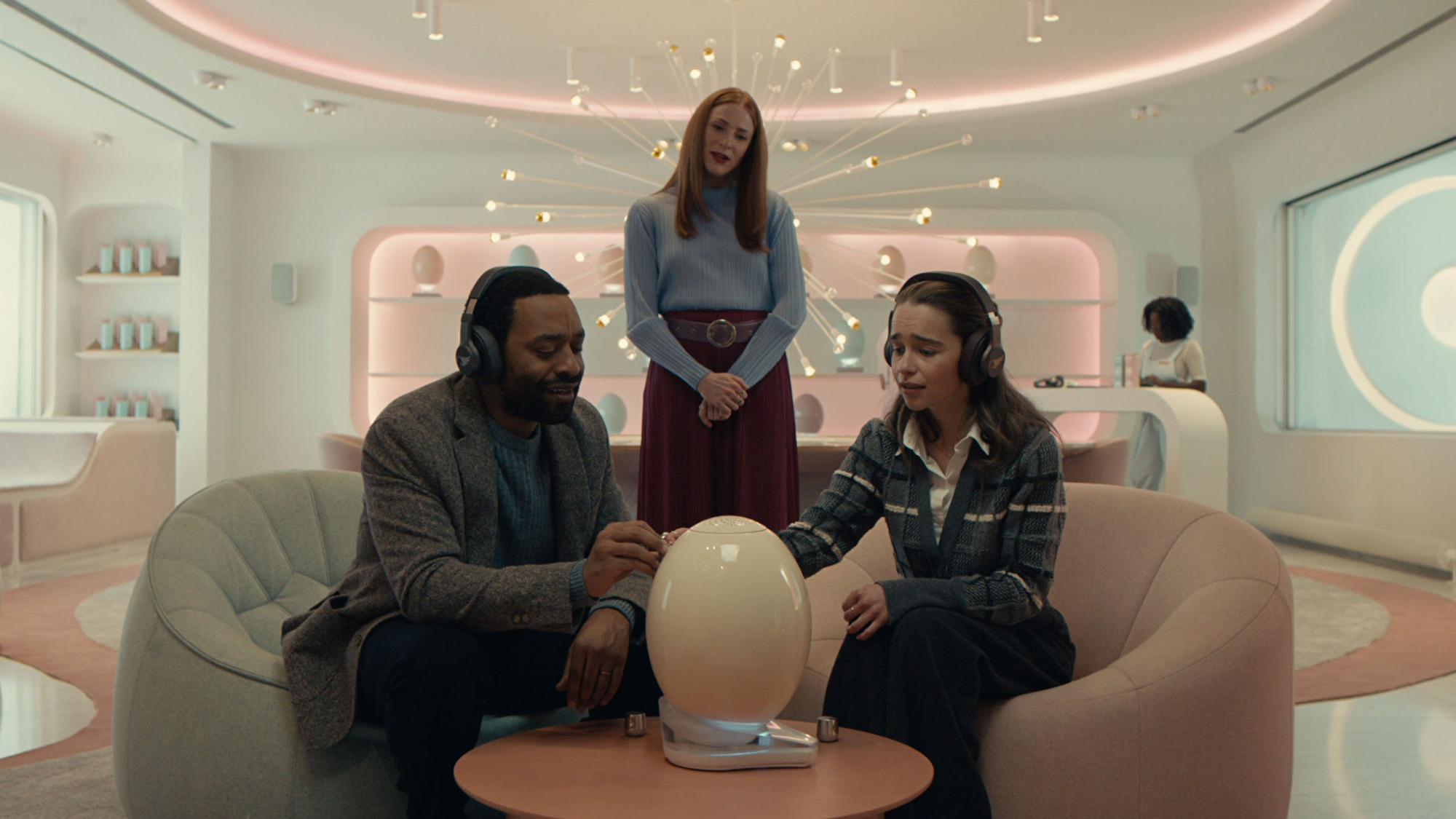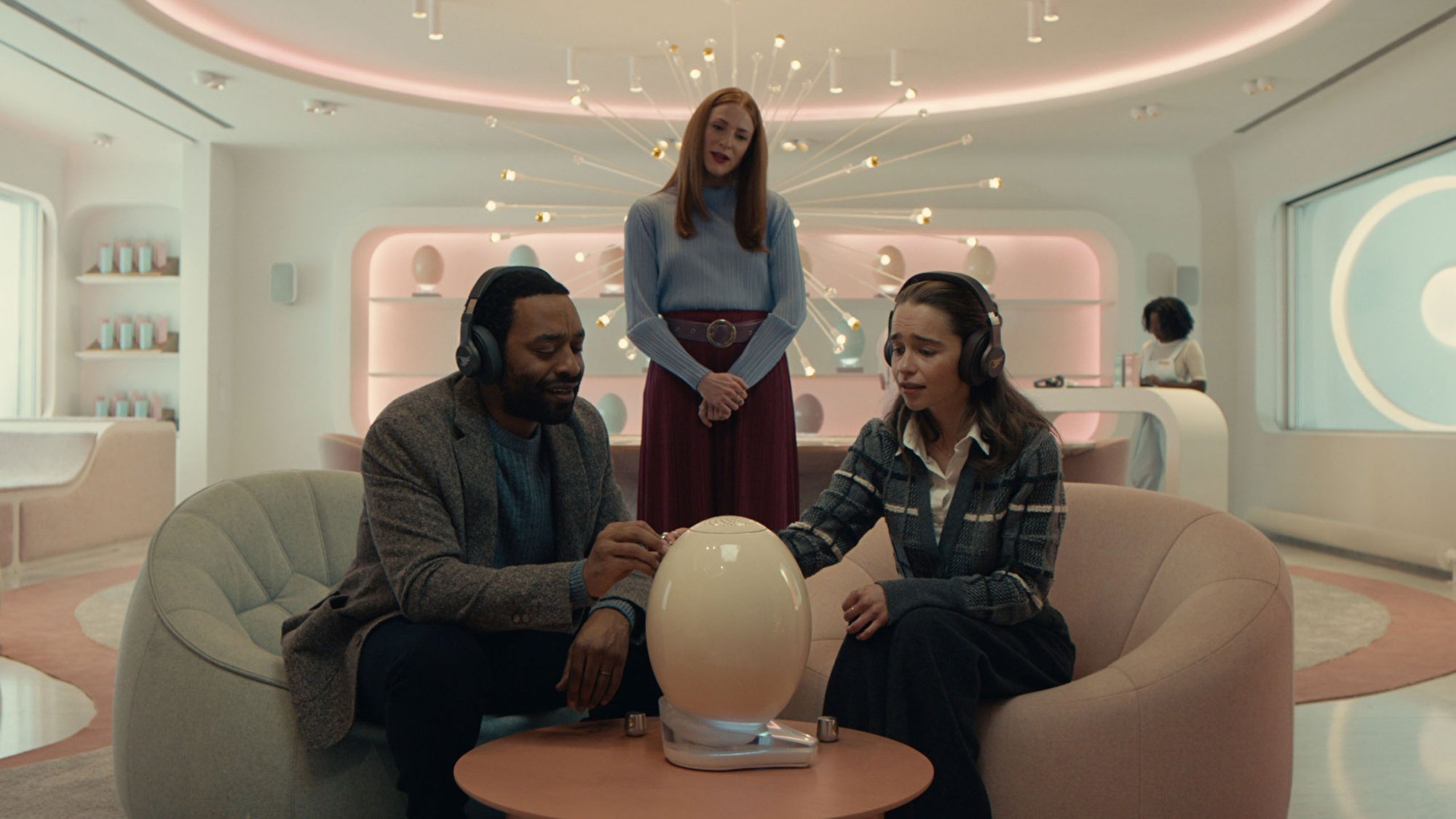
‘The Pod Generation’ Movie Review [Sundance 2023]: Emilia Clarke and Chiwetel Ejiofor Get Stuck in World-Building Exercise
The Sundance 2022 program included several feature films taking on abortion in America and beyond with movies such as Call Jane and Happening. In 2023, the film festival brings a futuristic look at pregnancy and parenting with The Pod Generation. However, its sociological and technological progress doesn’t feel so far off from where the world already is. Unfortunately, the storytelling result is one without much substance in its characters or their plight.

‘The Pod Generation’ looks at a new form of pregnancy

Rachel (Emilia Clarke) and Alvy (Chiwetel Ejiofor) are a committed couple living in a technologically advanced New York. She works at a company crafting AI assistants, while he’s a botanist and professor. They deeply love one another, but they disagree when it comes to talking about technology’s place in society. Rachel believes that progress is good, while Alvy is hesitant to allow it to replace the natural beauty of his plants.
The couple earns a highly-coveted spot in a program that allows humans to have a child using a new pod technology developed by a tech giant called Pegazus. Rachel and Alvy ultimately agree to go on this journey together. However, they discover that this new form of pregnancy also comes with its own challenges.
Technology as a sociological tool
Writer/director Sophie Barthes immediately soaks the audience into the world of The Pod Generation. Rachel and Alvy have an AI assistant in their own home, which is constantly ensuring that they’re happy and healthy. Technological advancements fill in many aspects of the couple’s daily lives, such as workflow management and even artificial therapists that made human ones redundant. Yet, only one of Rachel’s co-workers brings up her concerns regarding how these advancements could continue to put more folks out of a job.
The Pod Generation firmly establishes how technology is both a curse and a blessing, especially as it applies to parenthood and pregnancy. Pod straps allow men and women to essentially “carry” the baby to equally bond with it before birth. However, all of the characters experience some form of envy for what they don’t have, such as Rachel longingly staring at women without career pressures carrying a child in their actual womb.
Despite all of the technological advancements, Barthes’ screenplay emphasizes that society didn’t necessarily change for the better. The government doesn’t invest in education, leaving it to the private sector to fill in the gap. Additionally, women continue to face workplace hardships, as Rachel is discouraged from having a “natural” pregnancy, insinuating that only the “best and brightest women” would choose to go with the pod.
‘The Pod Generation’ gets too caught up in its own concept
The Pod Generation is a social satire that tackles the uterus as a political issue in a slightly different light. Barthes engages in some fascinating gender politics, highlighting “womb-” and “penis envy” and placing them within a relationship that becomes increasingly complicated by an artificial pregnancy. However, these satirical elements are treated as statements, underwhelmingly failing to communicate them in a way that’s funny or narratively compelling.
This futuristic society is creatively constructed, especially as it teases that it’s only the beginning of this bustling society’s advancements. However, the film forgets about its characters along the way. Rachel and Alvy’s relationship turmoil is entirely surrounding the pod baby, abandoning any meaningful character work. Neither of them is given a real background or personality, causing them to feel like blank slates that simply react to the technology around them.
Clarke and Ejiofor are successful with the material, providing nuance where possible. However, there just isn’t enough there to latch onto beyond some intriguing social concepts. It’s never dull, but its worthwhile ideas simply don’t translate into anything bigger. The Pod Generation is all world-building with minimal character substance, leaving little to engage with on an emotional or comedic level.


